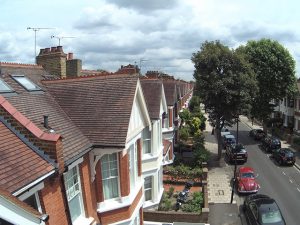
The cost of buying a house is unlikely to get cheaper.
It’s probably safe to say that the process of buying a house and moving is never going to get cheaper. A study compiled by Post Office Money and the Centre for Economics and Business Research (Cebr) showed that average moving costs in the South East had increased by 97% over a 10-year period, reaching £16,510 in 2014 – not surprisingly, London was the most expensive at £27,946. The study also suggested that costs would increase further year on year and, worryingly, found that 84% of prospective homebuyers underestimated the cost of moving.
Whilst actual costs will vary from one property to another, we thought it would be useful to give an overview of what’s involved when you buy a house and typical associated costs (excluding VAT).
Deposit
No surprises here, everyone knows that this is the biggest expense. Mortgage providers will require a deposit equivalent to 5% of the cost of the property you want to buy. A bigger deposit is likely to give you greater choice of mortgages, a better deal and lower interest rates.
Mortgage booking fee
Not all lenders will charge this fee, but some will in order to reserve funds for your mortgage, particularly if yours is a fixed-rate or tracker deal. Expect to pay £100-£250.
Mortgage arrangement fee
Again, it’s not applicable to all mortgage products but this is an upfront fee (in addition to the booking fee) that could cost up to £2,000 or more. In some instances you may have the option to add it to your mortgage amount, but be aware that you will be paying interest on it.

The building valuation is a check on the property’s worth. The survey is a check of the condition of the property.
Valuation and survey
Your mortgage lender will charge to carry out a valuation of the property you’re buying. The valuation is a check on the property’s worth which may well be different to the price for which you’re buying it, and is for the lender’s security – they want to know that, in the event of repossession, they can sell the property and recover their money. Your lender will also arrange a survey, most likely a very cursory appraisal of the property’s condition. Allow £150-£1,500 for this fee.
Conveyancing and legal fees
These cover all the legal work your solicitor will carry out to transfer ownership of the property. Allow £500-£750 for the basic service. On top of that your solicitor will carry out local searches to check for any issues that might impact on your property – planning, environmental and the like. Searches will likely account for £200-£300. Your solicitor’s fees will also include registration of the property under your ownership with the Land Registry – allow another £200-£300. You’ll also be charged a transfer fee of £40-£50 to cover the mortgage lender’s cost of transferring the mortgage money to your solicitor.
If you are selling a property as well as buying, you may be able to negotiate a deal with your solicitor – it’s always worth asking!
Stamp duty
Properties costing more than £125,001 are subject to Stamp Duty. This is calculated as a percentage of the property cost and increases according to which band your property falls into. Use an online calculator to check what you’ll be paying.
Building survey
Yes, that’s right, there’s another survey – but this is the important one. The valuation and survey conducted by your mortgage lender is purely for their benefit. Unless you’re buying a new build property, it would be foolish to go through the buying process without arranging a building survey. This is a thorough inspection of the property to check for structural defects. Whilst some things, such as damp, are easy to spot, other problems are often invisible. A full structural survey isn’t cheap – allow £600 or more – but settling for a basic home condition survey to save money may cost you far more in the long run. Just imagine moving in and then discovering problem after problem and thousands of pounds worth of repairs.
A building survey should be considered an investment. You’ll have a clear picture of the property’s condition and, with a home-approved home survey we make clear just how critical each issue is. It means you can plan and budget for any work that needs to be done. Importantly, this survey could actually SAVE you money – based on the findings you may be able to negotiate a better price with the vendor or get agreement that they will carry out certain works as a condition of the purchase. You may even decide to walk away from that particular property.
Have you found the property you want? Call home-approved to discuss your building survey on 0800 980 3113 or email info@home-approved.com.